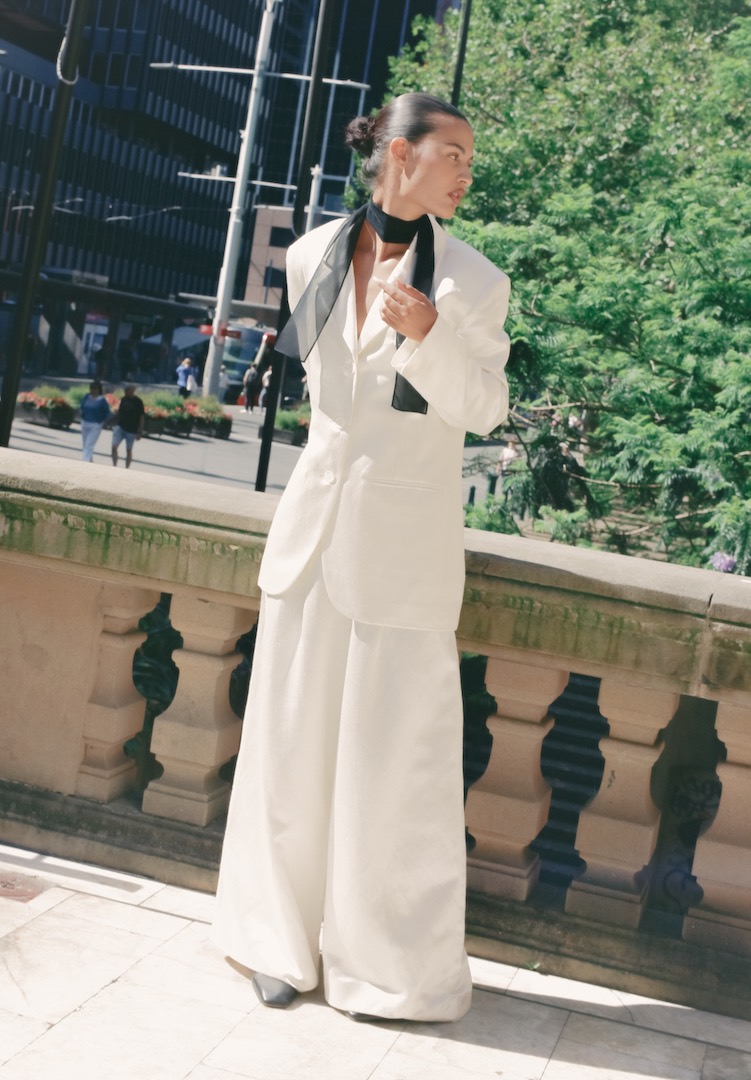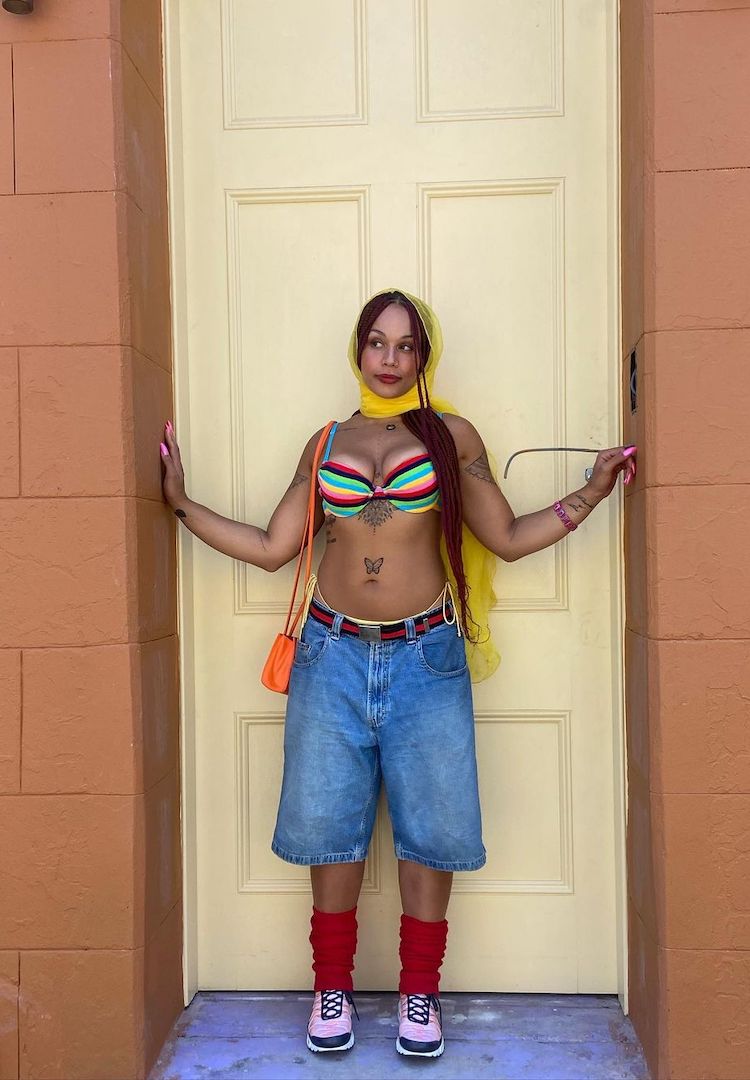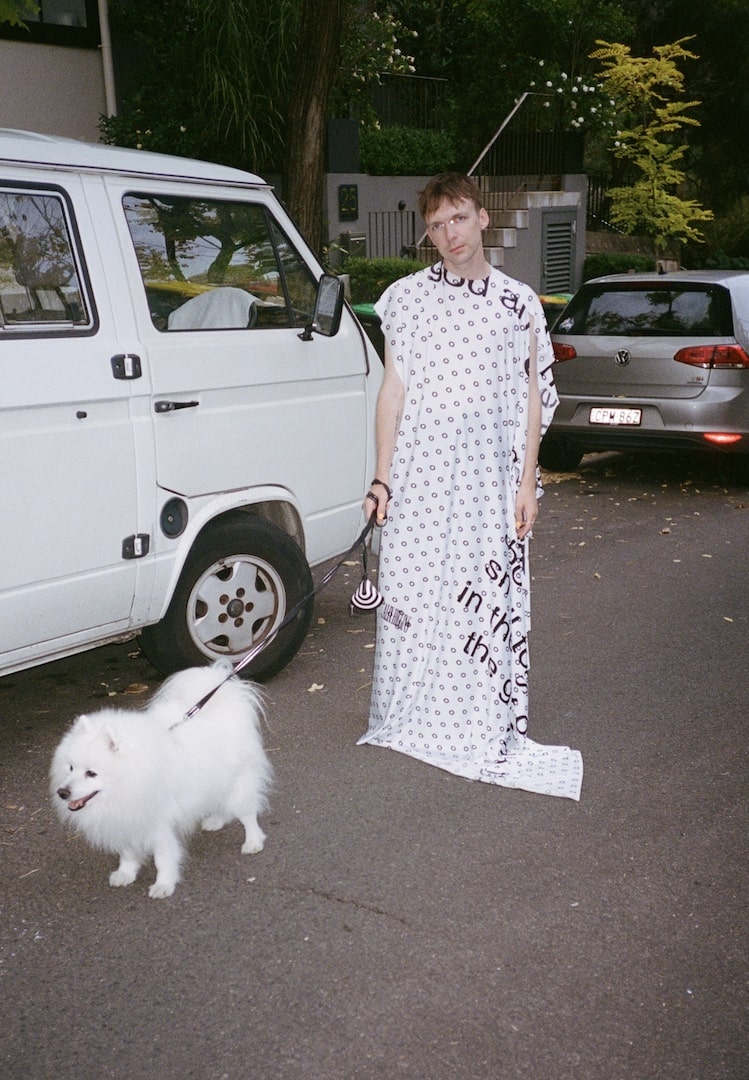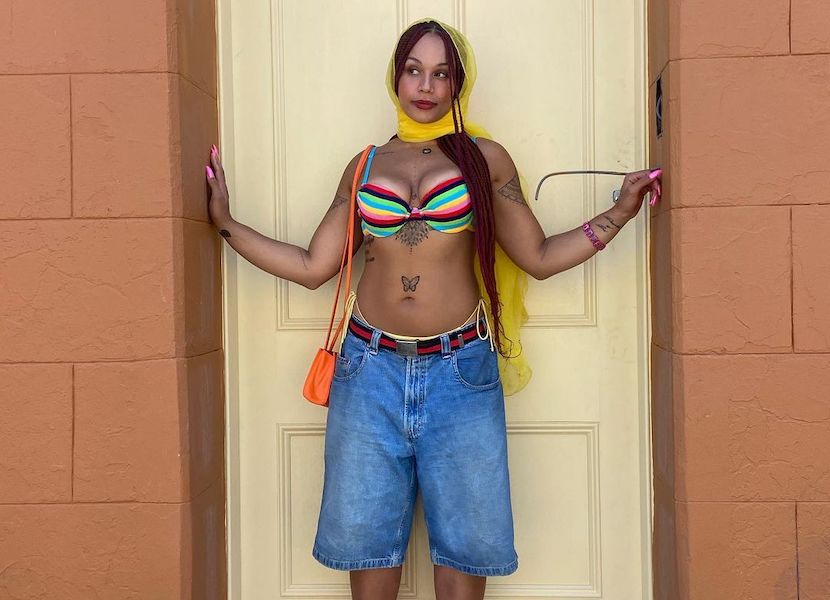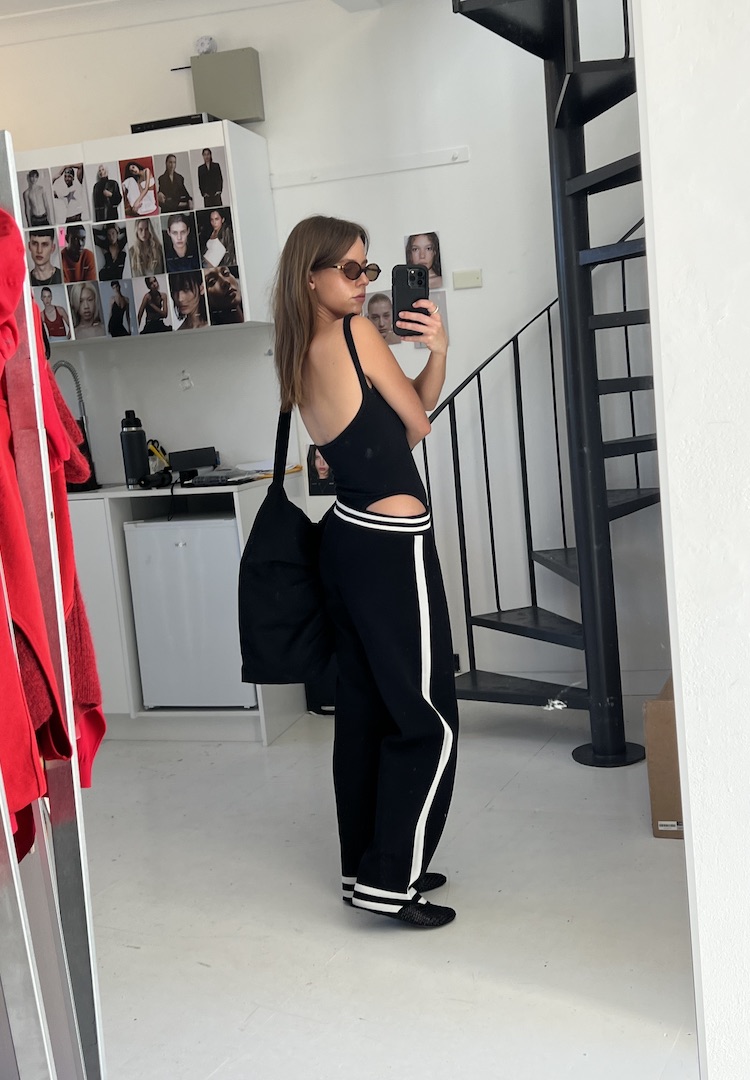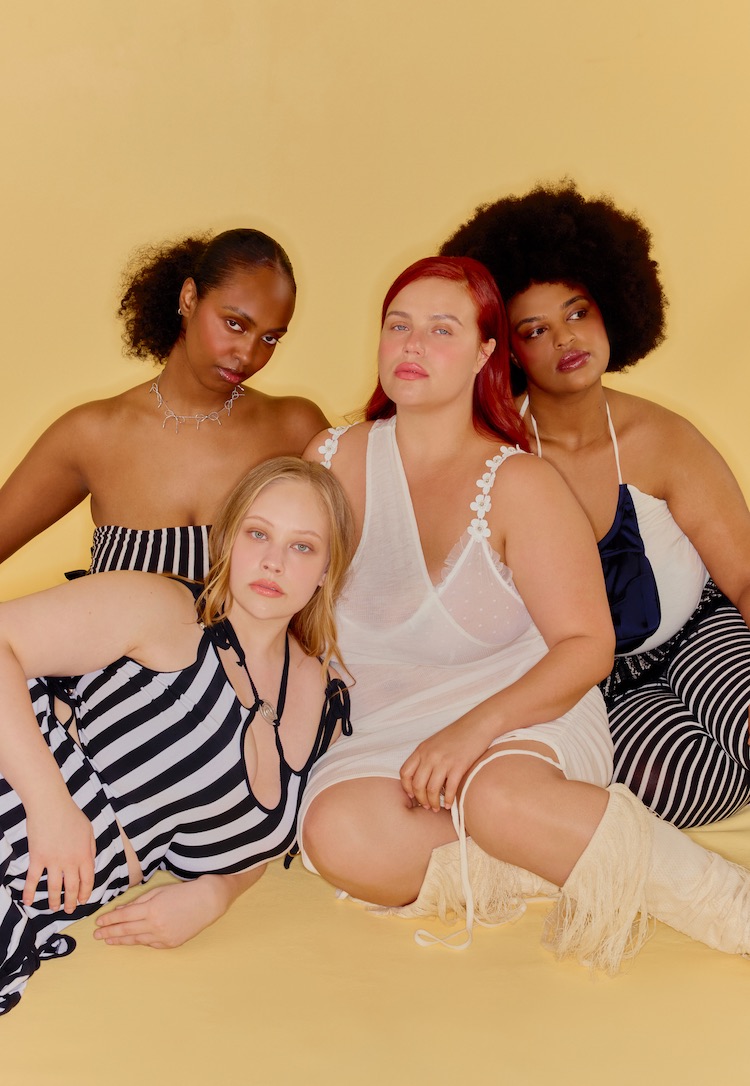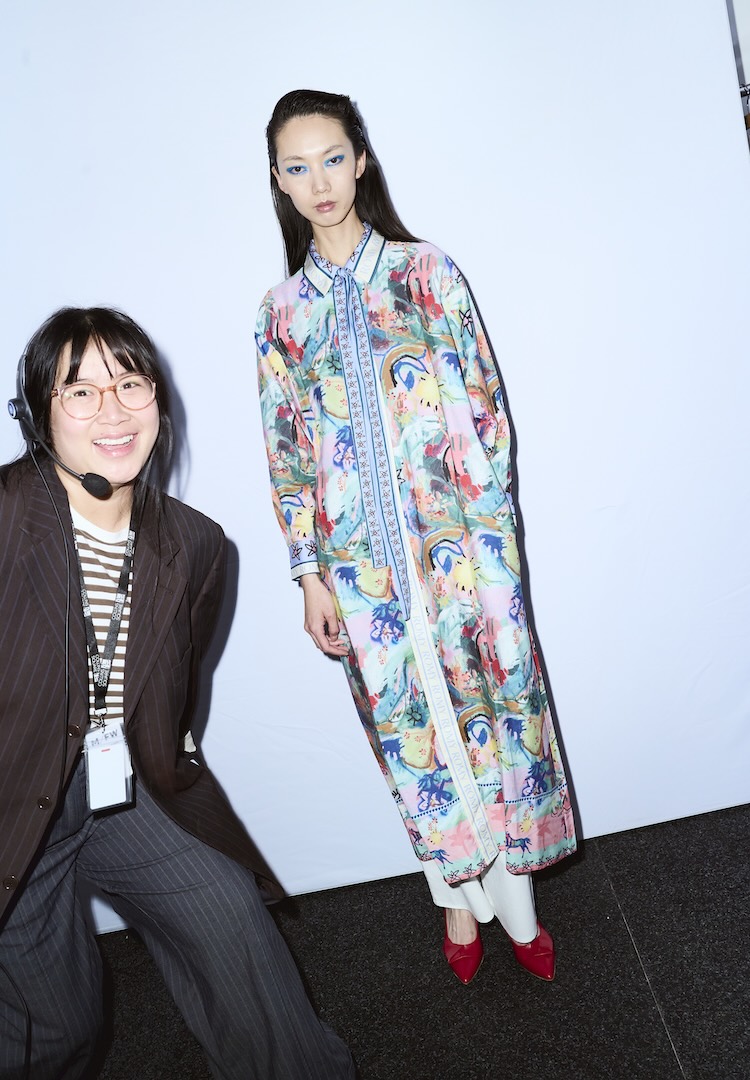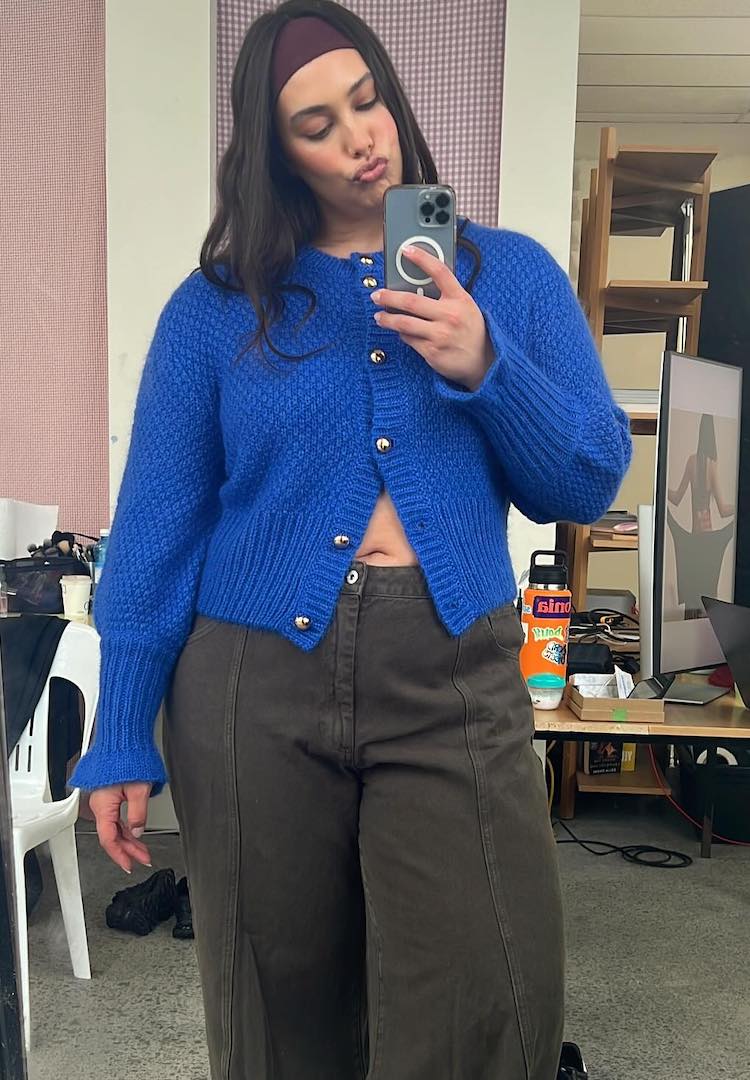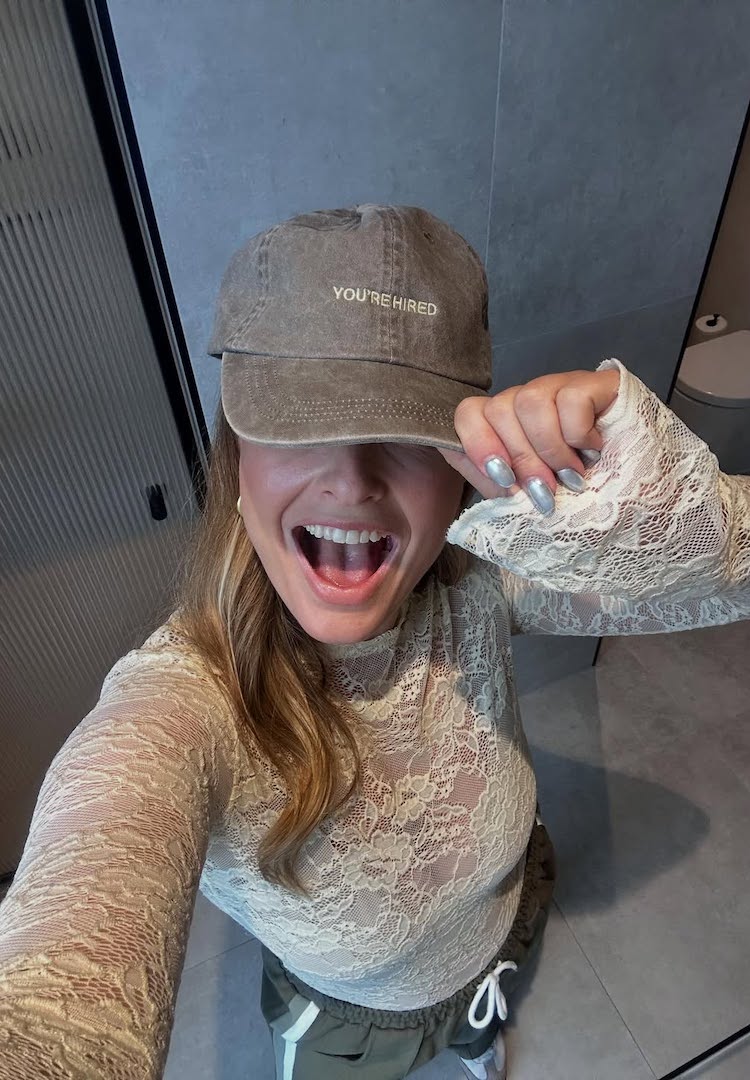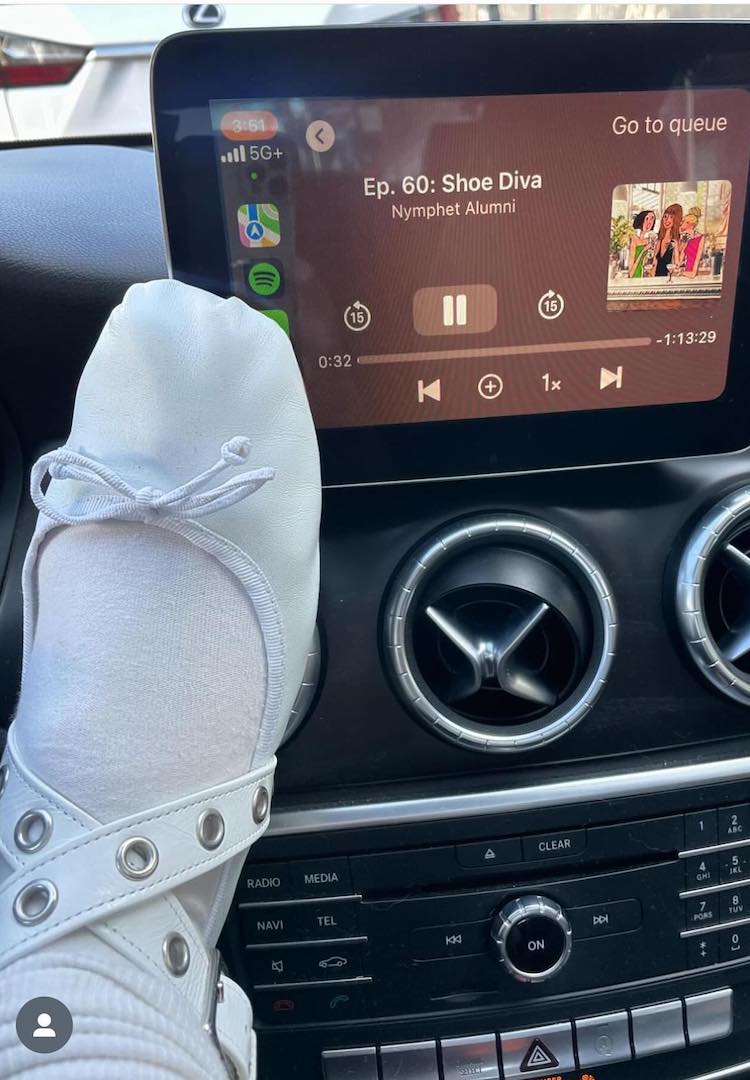“Over being overlooked”: Afterpay Australian Fashion Week’s Changemaker Basjia Almaan on demanding more than representation
IMAGE VIA @BASJIA/INSTAGRAM
WORDS BY MAGGIE ZHOU
“I’m so proud to be who I am.”
Fashion weeks are a launching pad for budding creatives. It’s not only local designers who take centre stage, but swaths of talented folk also have the opportunity to showcase their skills – from stylists and set producers to event organisers and makeup artists. For its third year in a row, Afterpay Australian Fashion Week (AAFW) is championing its Changemakers program, a unique offering for a handful of Australian cultural figures to work backstage and on-stage during the prestigious fashion week.
For more fashion news, shoots, articles and features, head to our Fashion section.
As an official media partner of AAFW, we sat down with one of this year’s Changemakers, Basjia Almaan. From her years as a shy and awkward teenager to leaning into her queerness and Blackness through ball culture and performance, Basjia’s evolution through the industry is nothing short of defiant. Over the past decade, the Sydney-based performer and model has navigated the fashion world in a myriad of capacities – but above all, her commitment to the elevation of underrepresented and misrepresented communities has never faltered. Here, she tells us her story.
Hey Basjia, please introduce yourself.
My name is Basjia Almaan, I’m 28 – I feel like I’m doing a self-tape – I’m a model, a casting director, a creative director, a movement director, I also do performance [and] teaching. Multiple hustles – that’s the life of a creative.
View this post on Instagram
I’ve been around the fashion industry for a really long time, both my parents loved fashion and wanted to be a part of it… I didn’t actually think it was an avenue that I would end up going down. I wanted to in high school and then I was like, ‘Absolutely not, no way, it’s not for me’. But then when I started modelling, I started just creating my own things and it just led me to everything that’s happening in my life.
I’m curious about your time in high school. Can you talk to me about what pulled you back from fashion then?
When I was in high school, I loved fashion, I loved playing with dolls. It’s such a significant thing my mum talks about; I would spend hours dressing dolls meticulously and [when I] got older, I would play dress-up games.
I was a very shy, low-confidence, awkward teenager. I know everyone says that but I think people [are] surprised about how different I am now versus how I was when I was a teenager. I hated leaving the house, I hated the way I looked. I just grew up in such an area where somebody like me didn’t really exist.
View this post on Instagram
When I left high school, I kind of had a think over and I was like, ‘I don’t actually think this [fashion] industry would be a space that I would feel comfortable in. I think I would be judged, I don’t think I’d be welcome’. So I ended up deciding to start studying nutrition… I had always loved fashion but I just never thought that that world would be a world I would be able to exist in.
There’s just over a decade between that time to you today. How did you actually overcome all that? I imagine your teenage self would be so proud.
Oh my god, my teenage self [would] be like, ‘Who the fuck is this?’… It’s [wild], just who I am now because I’m always wearing minimal clothing and dancing on stages and so proud to be who I am. I’m proud of the way I look. I love celebrating that and it’s just so crazy that it happened.
One of many pivotal moments was just literally moving out of home and being around Black women. That’s what unlocked the key for me to be like, ‘Ah okay, I don’t need to hate the way I look’. And then even things like becoming a part of ballroom has helped with my confidence, especially in performing and sitting comfortably in my queer identity and expressing myself in the loud[est] way possible.
View this post on Instagram
Career-wise, how did it all start out?
Everything started when I started modelling. When I was about 21, Bella Management was doing a competition on Instagram where they were… scout[ing] people and they ended up scouting me… I started creating my own shoots and I would just play and collaborate with photographers, hair stylists and makeup artists… I think that’s what got people to sort of start noticing my work.
It’s incredible seeing how hard you’ve worked and how many creative hats you’ve worn. But the other side of that is people of colour, particularly Black women, are held to a higher standard. What’s your relationship to the fact you’ve probably had to work a lot harder than others in the industry to get to where you are today?
It’s like you might have a makeup artist who’s been doing it forever so they just get booked, booked, booked. But then you have, say, a makeup artist of colour or a Black makeup artist and maybe they’re fresh and new but they’re actually skilled at knowing how to do people of colour’s makeup. [But because] they’re not getting booked as much, they start endeavouring into other things as well. The industry may hire someone because they’ve been doing it for years but [it] doesn’t always make space for younger creatives with unique ideas and talents.
A lot of creative friends that I have have multiple hustles because we don’t really always get consistent work. I’ve gotten to a place where that’s fine because I enjoy doing so many other things. But of course, in an ideal world, we would love to be getting consistent work [and] consistent income.
You’re one of Afterpay Australian Fashion Week’s Changemakers! Why is this role important to you?
View this post on Instagram
People are over being overlooked… I still feel like Australia is really behind when it comes to bringing actual diversity. When I speak about diversity, I’m not talking about how it just looks on a runway or how it looks in a shoot – it’s about the experience of the model on that shoot. It’s about the experience, about the team that was there to help, or the team that was being consulted [for] the shoot.
Having a Black, Indigenous or person of colour as a model is fab, and that’s what we want to see. But did [the makeup artist] know how to do their makeup? Did the person who was on hair know how to do their hair? Did you actually ask them if they felt comfortable? I think that’s the thing that I’m talking about when I’m talking about real diversity.
My work this year [at AAFW] is I’m going to be doing casting, mak[ing] sure there’s consistency in booking different types of people on a runway… There are models who[m] I cast last year, who [are] getting booked again and getting booked for other shows. That’s all I want – just continuing to create space for people who felt excluded from this industry and now can thrive in it.
To read up about the rest of Afterpay Australian Fashion Week’s Changemakers, head here.

